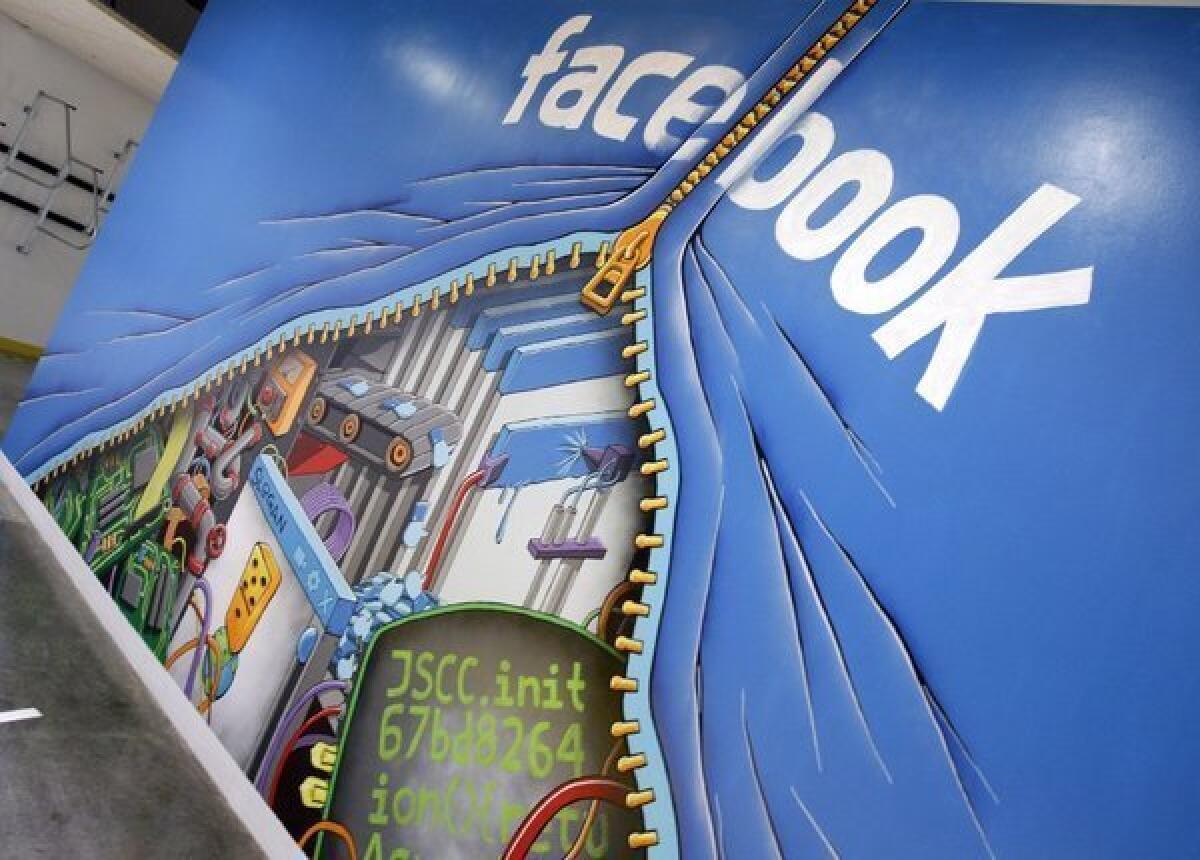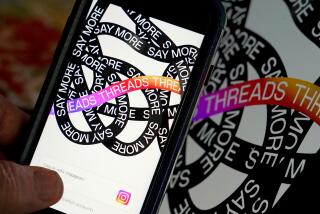Facebook is about to redesign News Feed: Here’s what to expect

- Share via
SAN FRANCISCO -- Facebook is rolling out a radical new redesign of News Feed, the biggest since it launched the feature in 2006.
The giant social network plans to unveil the redesign at a press conference Thursday at its Menlo Park, Calif., headquarters.
The redesign will reportedly give users new ways to catch up with what friends are doing, such as sorting through photos they share or music they are listening to. Right now users can only sort the News Feed by “Top Stories” or “Most Recent.” The changes address a frequent complaint from users that they have too little control over what appears in their News Feed.
Photos: The evolution of the Facebook News Feed
The News Feed will also feature splashier photos and videos.
This is a high-stakes move. News Feed is indisputably the most valuable real estate on Facebook. It’s the place that people get updates from their friends. And it’s the place that Facebook is betting advertisers have the best shot at connecting with its 1 billion-plus users.
“News Feed is why we go to Facebook. Anything that makes users more likely to visit is important,” Wedbush Securities analyst Michael Pachter said. “Allowing feed customization provides Facebook with more information about what users find relevant, allowing better targeting for advertisers. Better targeting means higher revenue per impression or click-through, and translates to overall higher revenue and profits for Facebook.”
In a interview at a recent investor conference, Facebook Chief Financial Officer David Ebersman underscored that surfacing the most interesting information for users “will be core to our ability to continue to have engaged users even as they contemplate other services.”
But it’s not just about capturing and keeping users’ attention. It’s a major effort to ring up more dollars from advertisers.
“Advertisers want really rich things like big pictures or videos, and we haven’t provided those things historically. But one of the things that we’ve done in the last year, as you’ve seen, the organic News Feed product that consumers use are moving toward bigger pictures, richer media, and I think you will continue to see it go in that direction,” Facebook cofounder and Chief Executive Mark Zuckerberg said during a conference call with analysts in January.
News Feed, which is now the company’s most successful feature, didn’t start out that way.
Facebook debuted News Feed in September 2006, and suddenly everyone could see everything their friends were posting on Facebook. Some 700,000 users out of 9 million joined protests that the new feature that alerted friends to every piece of information they shared on Facebook was too intrusive. They threatened boycotts and clamored for an off switch.
Zuckerberg apologized for the way Facebook introduced the feature and gave users more control over privacy settings but didn’t waver. He promoted the News Feed as a cool way to “know what’s going on in your friends’ lives.”
Now the News Feed is far more crowded as friends, businesses and celebrities you “like” all compete for your attention.
Facebook uses a secret algorithm to only show you the updates it thinks will interest you. No one knows why Facebook’s algorithm selects the updates it does any more than they know why certain results rank high in Google.
But some people aren’t happy about it. Billionaire Mark Cuban and “Star Trek” actor George Takei are among those who have complained that their posts that used to reach millions of fans are now getting drowned out. They have accused Facebook of profiteering. A tweak in the News Feed algorithm coincided with a push from Facebook to get marketers to buy ads in the News Feed.
Facebook denies it suppresses updates to get people to buy ads.
“Our goal with News Feed is always to show each individual the most relevant blend of stories that maximizes engagement and interest. There have been recent claims suggesting that our News Feed algorithm suppresses organic distribution of posts in favor of paid posts in order to increase our revenue. This is not true,” the company said in a blog post.
The redesign of News Feed comes on the heels of another major Facebook product rollout: Graph Search.
Facebook made another move on Wednesday, expanding its board of directors. It announced that Susan Desmond-Hellmann, chancellor of the University of California at San Francisco, was elected to the board. Desmond-Hellmann is the former president of product development at biotechnology company Genentech and has experience operating a public company and shaping public policy. She will begin serving on the board right away but will have to be elected by shareholders at the company’s annual meeting in June.
Facebook’s chief operating officer, Sheryl Sandberg, joined the board in June 2012, a month after the company went public.
ALSO:
Facebook introduces new search tool
Facebook’s Chris Cox: A very likable pitchman
Is Facebook worth it? Film execs may cut movie ads
More to Read
Inside the business of entertainment
The Wide Shot brings you news, analysis and insights on everything from streaming wars to production — and what it all means for the future.
You may occasionally receive promotional content from the Los Angeles Times.










